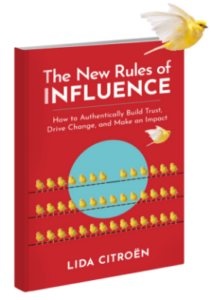We often think of brands as something corporations, products and cattle have. The word “brand” makes us think of Nike, BMW, Merrill Lynch or even the Intel “chime”. A brand is the reputation and legacy of the company. The brand sets an expectation of an experience of doing business with them. When we brand, we create a promise, in the mind of our consumer or audience, to which they can hold us accountable.
is the reputation and legacy of the company. The brand sets an expectation of an experience of doing business with them. When we brand, we create a promise, in the mind of our consumer or audience, to which they can hold us accountable.

Branding is about setting an emotional connection with a target audience. If I buy BMW, I believe I will feel powerful, successful and confident. If I do business with Merrill Lynch, I believe my investments will be safe and I will be cared for as a client.
That promise, or brand, directly affects the experience and the expectation I have of working with a company… and with an individual. Yes! People have brands, too. We call these “personal brands” and they are a big factor in deciding to work with a person at a company. Our personal brand is the reputation we have earned, over time, through our behavior and interactions with people who perceive our value. How someone perceives you directly impacts whether they want to work with you, refer business to you, or trust you with their investments, for instance.
How can a personal brand and a corporate brand work together?
Oftentimes, professionals don’t work for companies where their name is on the door. They are employees within a larger firm, which has been crafted and branded by someone else.
In choosing to work at that firm, the professional likely considered several aspects – compensation program, resources, career growth and reputation of the company in a specific market. For many professionals, being aligned personally with the values of the firm is critical. Others don’t pay much attention to the mission statement and vision, just the track record. Either way, by working for that company, they are aligning their personal values and credibility with the credibility and values of the company, even without knowing it.
What happens when someone’s personal values fall out of alignment with the company’s reputation?
We see this happen when either the employee’s values conflict in principal with the company, or when the company values fall short of delivering on promises made to the market place. In either case, a fracture has occurred.
For the company who recognizes that a representative is not living up to the expectations it seeks to build with clients, this person’s rogue behavior can severely impact the company’s reputation and integrity in the marketplace. One person in conflict can have grave impact to the vision and mission of a company if, for instance, they take their displeasure into the social media space. This not only offers risk and impact to the brand, but liability to the business if confidential information is shared. Beyond the legal risk, companies feel the threat to their value in with clients if an employee’s values conflict with their own – it is often obvious to others that the employee is not aligned, and cannot authentically deliver the service, quality and integrity the company stands for if they do not believe in the brand.
Likewise, professionals are directly impacted when the reputation, integrity and credibility of the company brand shatters. As we have seen recently particularly in financial services, as the big firms, banks, institutions and agencies come under scrutiny for questionable practices, it is only natural that the professionals waving the company flag feel the pressure to their individual reputation.
What can an individual do if the company reputation gets hit?
In today’s skeptical business climate, clients are looking for greater meaning, transparency and sincerity from the companies they choose to work with. Taking a proactive approach and ensuring your frontline teams carry a consistent response and message is important work being done by marketing teams faced with these corporate challenges.
On the individual side, it is critical that the professional stays consistent and true to his or her personal brand, despite the company image. The values that led them to want to join the company and the work they have done while employed should remain the focus. It is not the individual’s place to try to repair the integrity of the company, except through his or her ethical individual actions and the protocol issued by senior management.
That said, it is hard not to feel betrayed and confused when the brand you believed in feels disloyal. Clients and investors will often seek “the truth” and ask for personal insight, rather than what the press release said. This is a challenge! At the end of the day, it is the integrity and credibility of the individual contributor who can make the mission and statement of the company come to life. When I do business with Bank of America, for instance, I am not doing business with an institution, I am working with Joe, my sales representative.
In closing
I remember when I was asked to come and address the business development team at a large, global bank. They asked me to speak on the power of individual branding alongside the corporate brand.
What I noticed immediately was how they all addressed solutions and offers with “we.” “We can provide a custom business approach to meet your needs…” “We have been in business for 200 years….” “We have a solid credit rating…” There was no individual, personal connection.
In our work together, I emphasized that the power of the corporate brand was obviously a big credibility hook – without having the international reputation the company had, their clients would surely not be as forthcoming.
But beyond that, what made their clients buy, were the individual relationships they had with the person sitting across the desk. That was the deeper relationship, that’s where I experienced the trust and credibility. That’s where the “promise” came to life.



Excellent article and insight! Thank you.